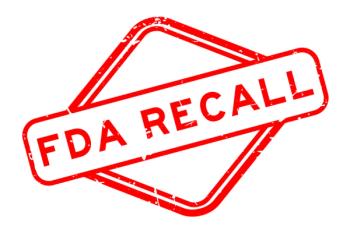
DEA issues alert on bogus ketamine recall
Washington-A fake letter to recall ketamine spurred a scam alert to veterinarians by the Drug Enforcement Administration (DEA).
Washington-A fake letter to recall ketamine spurred a scam alert to veterinarians by the Drug Enforcement Administration (DEA).
The agency issued the warning after Fort Dodge Animal Health uncovereda spurious letter sent to a veterinarian claiming a recall of its ketamineproducts. Fort Dodge says that no such recall was ever authorized by thecompany, confirming the letter was either a hoax or a scam.
Officials say that while the phony recall letter didn't specify a returnof ketamine products, it did request veterinarians to wait for further instructions.Ketamine, a DEA-controlled substance, has long been known for its humanabuse potential. Over the last several years, veterinary clinics have beentargeted for robberies to gain access to the drug. Ketamine, along withthe other "club drugs," has become popular among teens and youngadults at dance clubs and "raves." Internet Wire reports thatketamine is the fastest growing designer drug on the club scene. The newsservice reports that emergency room visits from illegal use of the drughave increased tenfold from 1994 to 2000.
Scott Bormann, director of companion animal business for Fort Dodge AnimalHealth, says the letter was littered with typographical errors, and justdidn't look professional. It was enough to raise suspicion from a recipientpractitioner, who forwarded the letter on to the company.
Bormann says the company does not believe these letters were widely distributedto veterinarians, since the company did not get many inquiries from veterinarypractices. But it was enough for DEA to issue the alert.
"The message is to be on the lookout," Bormann adds. "Whenin doubt, if you get something questionable, call the company to verifyit."
DEA's alert, issued by the Office of Diversion Control, says, "Aletter was sent to a veterinary office advising the doctor that there maybe possible side effects associated with the use of 1999-2000 batches ofKetaset." The letter claims Fort Dodge was monitoring all cases involvingthe side effects resulting from the drug and therefore a recall was beingissued. The letter didn't ask for a return of ketamine, but did tell therecipient to "await further instructions."
DEA says that no further contact has been made to the veterinary clinic.
"The intent of the scam is unknown. It may be a way to determinethe quantity of Ketaset a registrant has at his/her location as a possibletarget for robbery or may be a way to obtain product through a phony recall."
DEA is asking veterinarians to contact the nearest DEA Diversion FieldOffice if similar letters are received. A complete directory of officesand telephone numbers can be found at www.dea.gov or call (202) 307-7297.
Newsletter
From exam room tips to practice management insights, get trusted veterinary news delivered straight to your inbox—subscribe to dvm360.




